With the National Assembly delegate's suggestion that the policy of building Vietnam's first semiconductor chip manufacturing factory is not attractive enough, the Government representative said that it will study, absorb, and perfect the resolution to submit to the National Assembly for approval.
With the National Assembly delegate's suggestion that the policy of building Vietnam's first semiconductor chip manufacturing factory is not attractive enough, the Government representative said that it will study, absorb, and perfect the resolution to submit to the National Assembly for approval.
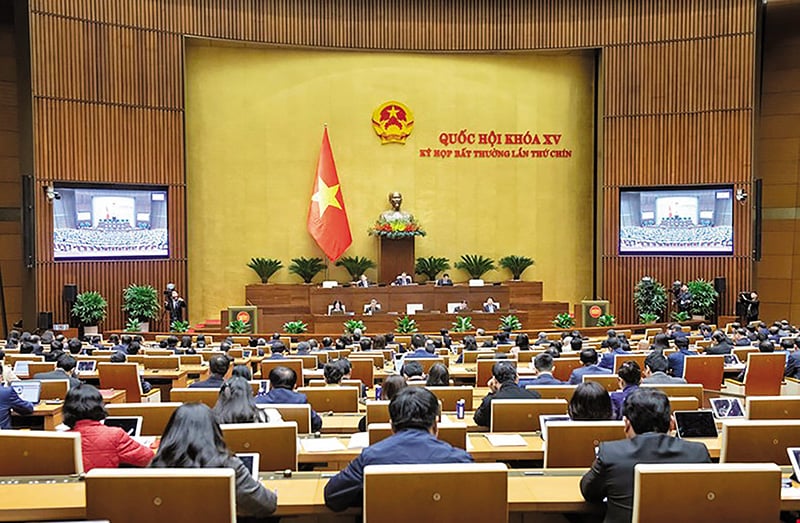 |
| Plenary discussion session of the National Assembly on the Draft Resolution of the National Assembly on piloting a number of policies to remove obstacles in science , technology and innovation activities |
The first factory is very important
This morning (February 19), the National Assembly's Resolution on piloting a number of policies to remove obstacles in science, technology and innovation activities will be passed by the National Assembly.
This is the name of the draft resolution initially submitted by the Government. After that, after receiving comments from National Assembly delegates, at the end of the discussion session in the hall on the morning of February 17, the representative of the Drafting Committee (then Minister of Information and Communications Nguyen Manh Hung) proposed a new name: Resolution on piloting a number of special policies and mechanisms to create breakthroughs in the development of science, technology, innovation and digital transformation.
“The pilot resolution does not have the ambition to remove all bottlenecks, especially when prepared in a short time, but focuses on piloting a few special policies and mechanisms under the authority of the National Assembly that are basically clear and can be implemented immediately, hitting long-standing bottlenecks, hitting urgent issues to create breakthrough development, and immediately implementing Resolution 57 of the Politburo,” Minister Nguyen Manh Hung explained.
Previously, one of the issues mentioned by delegates was that the Draft Resolution stipulates that the central budget supports no more than 30% of the total project investment and no more than VND 12,800 billion to build a small-scale, high-tech semiconductor chip manufacturing factory to serve the needs of research, design, production, packaging, and testing of semiconductor chips.
Delegate Nguyen Duy Minh (Da Nang) analyzed that according to the provisions of Article 17 of the Draft Resolution, the time when the semiconductor manufacturing factory goes into production before December 31, 2028, the policy of supporting 30% of the total investment is applied to create pressure and motivation for businesses to finish 2 years early is a good idea. "However, building the first semiconductor manufacturing factory in Vietnam with such a deadline is quite difficult to implement and the 30% support level is not attractive enough," commented delegate Minh.
Therefore, Mr. Minh proposed to stipulate that Vietnamese enterprises can choose one of two cases.
Firstly, enterprises using investment capital to invest in projects will be allowed to extend the support period until December 31, 2030 and will be supported according to the following time frames: 30% in 2030, an increase of 10% if shortened by 1 year; 40% support in 2029; 50% support in 2028.
Second, enterprises are allowed to use the Science and Technology Development Fund of the enterprise to invest in projects and are allowed to allocate a fund higher than 10% (according to current regulations) for a number of years to invest in factories with the deadline for the factory to go into production before December 31, 2030.
In response, Minister Nguyen Manh Hung affirmed that the semiconductor industry is a strategic industry. Vietnam aims to fully develop all stages of this industry, of which the most difficult is the manufacturing plant, especially the first manufacturing plant which is very important for research and testing of chips designed in Vietnam.
“This factory is very important for the production of specialized chips in Vietnam, especially for national defense and security, and is very important for human resource training,” Mr. Hung emphasized.
Minister Nguyen Manh Hung also provided more information, this small-scale factory is about under 1 billion USD, like a Lab.
According to Mr. Hung, the State should invest fully, but to attract businesses to participate in investment in operations, the Resolution proposes to support 30% of the total investment value.
“There are opinions from National Assembly delegates suggesting a higher level of support, up to 50% if done faster and at least 30%, allowing businesses to use the science and technology fund for investment because this is a research and development project, not a pure business; allowing businesses to draw from the Science and Technology Fund more than 10% in a number of years to invest in this factory and lab, and not just naming the businesses that are supported. We would like to study and accept it,” Minister Nguyen Manh Hung reported to the National Assembly.
Need for breakthrough policy to develop nuclear power
Also this morning, the National Assembly voted to pass a Resolution on special mechanisms and policies for investment in the construction of the Ninh Thuan Nuclear Power Project.
Previously, in the discussion in groups and halls, many delegates agreed on the need for a breakthrough policy to develop nuclear power as well as nuclear energy for the peaceful and development purposes of Vietnam, as the Government has presented. Some opinions also noted that, in addition to the potential benefits and positive aspects, the Project also faces many risks and challenges. Therefore, it is necessary to carefully consider the issues of finance, technology, and social and geopolitical environmental safety.
Regarding specific content, the selection of investors and contractors is one of the issues that delegates are interested in. According to the report, the Prime Minister assigned investors to implement projects applying the form of turnkey contracts and designated bidding for turnkey packages for the construction of main factories with contractors in intergovernmental agreements or treaties; applying the form of designated bidding/abbreviated designated bidding for important consulting packages to prepare, examine, evaluate, and assist investors in managing and implementing projects; purchasing fuel, hiring partners for operation and maintenance in the initial period.
During the discussion in the group, some delegates still had concerns about this regulation, because if it is not strictly controlled, it could affect the transparency, progress and quality of the Project.
Speaking at the meeting, delegate Trinh Thi Tu Anh (Lam Dong) said that the “turnkey” contract is suitable for Vietnam’s current conditions. The delegate analyzed that South Korea – a country with nuclear power technology – also chose this form for their first plant in 1972-1978.
Thanks to strong support policies for research, by 1998, Korea had completely mastered the technology, exporting “Made in Korea” nuclear power plants to the United Arab Emirates in 2009. Some other countries also chose the “turnkey” contract form when building their first nuclear power plants such as Egypt, Türkiye, Bangladesh, Belarus, the United Arab Emirates, Poland, etc.
Regarding nuclear safety and security, delegate Tu Anh said that, according to practice, suppliers all comply with the principles of the International Atomic Energy Agency (IAEA), so no matter which partner technology is chosen, the standards and regulations used in the design of nuclear power plants are in accordance with IAEA standards.
According to delegate Tu Anh, designs related to terrain and climate characteristics according to Vietnam's conditions need to be approved according to Vietnam's safety standards and regulations, and can be assessed according to a shortened process.
Another content that is also of interest for discussion is the regulation that investors are exempted from reporting to the owner's representative agency to review and approve investment projects and capital mobilization plans.
Delegate Nguyen Quang Huan (Binh Duong) said that there are many things that cannot be foreseen when implementing large projects. "Suppose that later, the owner's capital cannot meet the demand and needs to increase capital, but the state ownership agency does not participate in supervision, then will the investor have the authority to increase capital or not, or will he have to ask the National Assembly again?", Mr. Huan raised the question.
According to the Binh Duong delegate, the state ownership agency’s supervision makes decisions faster than asking the National Assembly for adjustments. Therefore, it is necessary to consider so that the project can be implemented quickly but stably.
In his explanatory report, Minister of Industry and Trade Nguyen Hong Dien said: “With the spirit of being open-minded, urgent, not perfectionist, but also not hasty or subjective, after today's discussion session, we pledge to continue working with the presiding agency to thoroughly review and research, maximally absorb the valid opinions of the delegates to complete the Draft Resolution, submit it to the National Assembly for consideration and approval at the end of this session, as a basis for urgently implementing the Project, ensuring quality and progress as required”.
This morning (February 19), the 15th National Assembly closed its 9th extraordinary session, passing resolutions on adjusting the growth target to 8% or more, on the investment policy for the Lao Cai - Hanoi - Hai Phong Railway Construction Investment Project, and on piloting a number of specific and special mechanisms and policies to develop the urban railway network system in Hanoi and Ho Chi Minh City.
The content of the button also includes resolutions on piloting a number of special policies and mechanisms to create breakthroughs in science and technology development, innovation and digital transformation; on special mechanisms and policies for investment in the construction of the Ninh Thuan Nuclear Power Project, and on handling a number of issues related to the reorganization of the state apparatus.
The Law on Promulgation of Legal Documents (amended) and the Law on Organization of Local Government (amended) were also passed in this session.
Source: https://baodautu.vn/nghien-cuu-ho-tro-cao-hon-cho-cong-nghiep-ban-dan-d247625.html








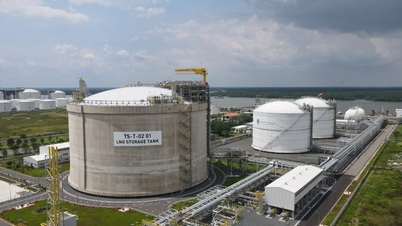

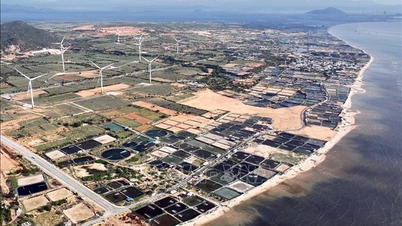



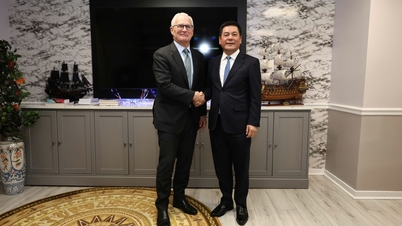
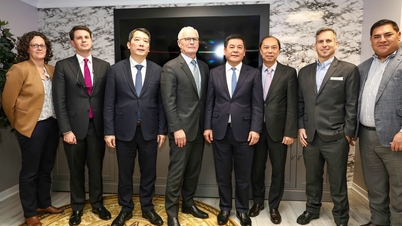




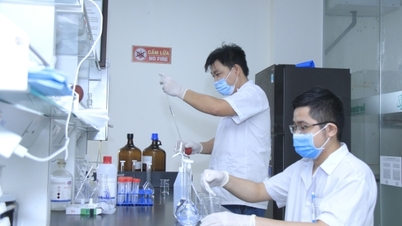




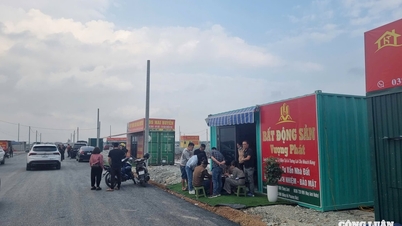










![[Photo] Explore the US Navy's USS Robert Smalls warship](/_next/image?url=https%3A%2F%2Fvphoto.vietnam.vn%2Fthumb%2F1200x675%2Fvietnam%2Fresource%2FIMAGE%2F2025%2F12%2F10%2F1765341533272_11212121-8303-jpg.webp&w=3840&q=75)






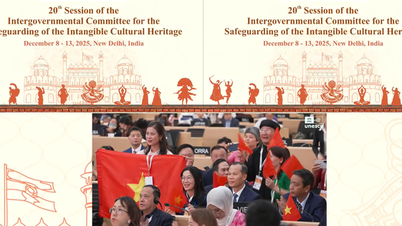

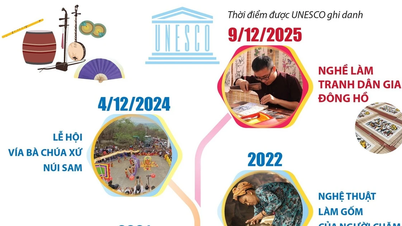
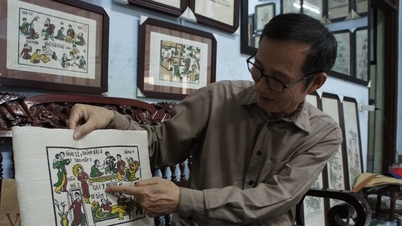




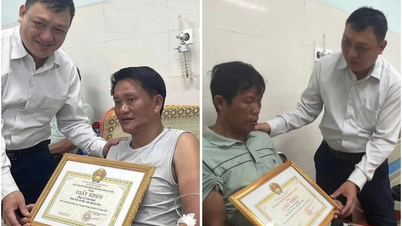



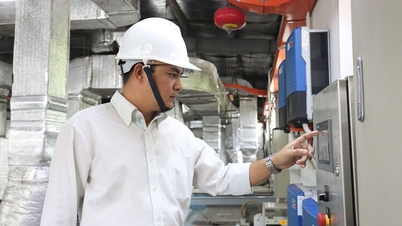




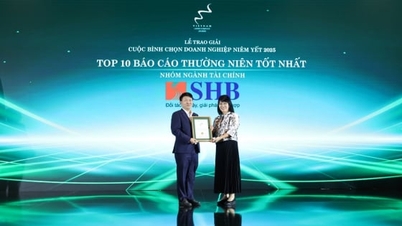

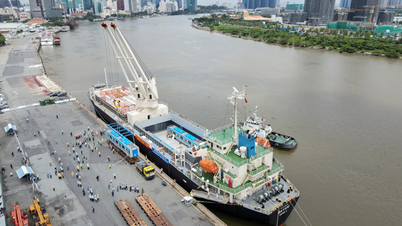

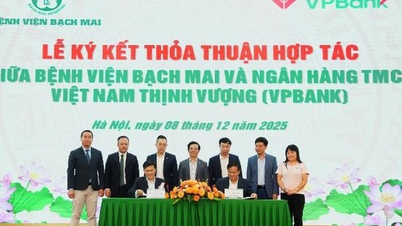








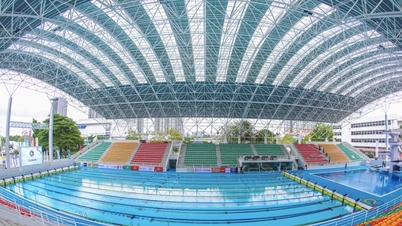



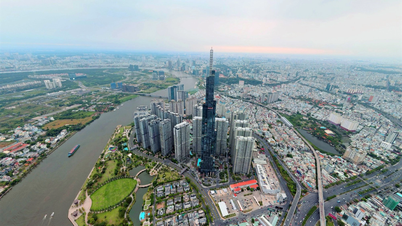

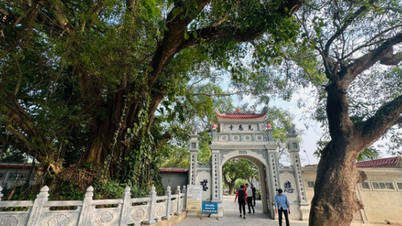
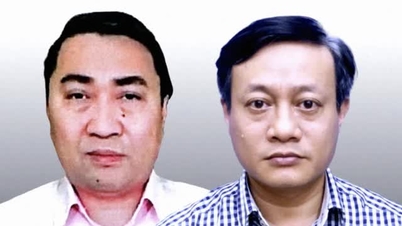


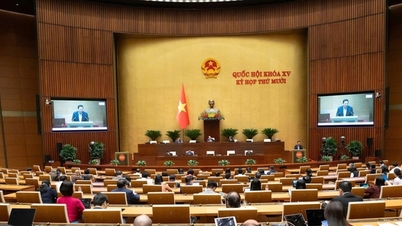

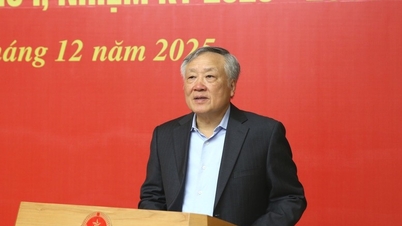
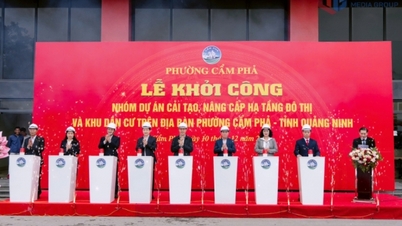





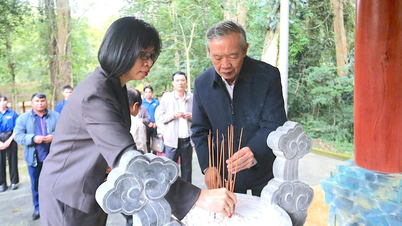

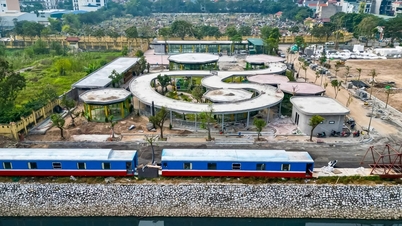

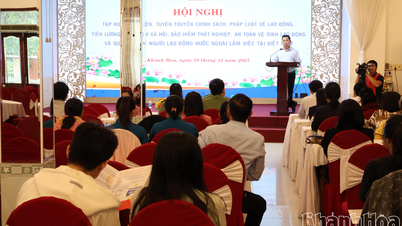



















Comment (0)